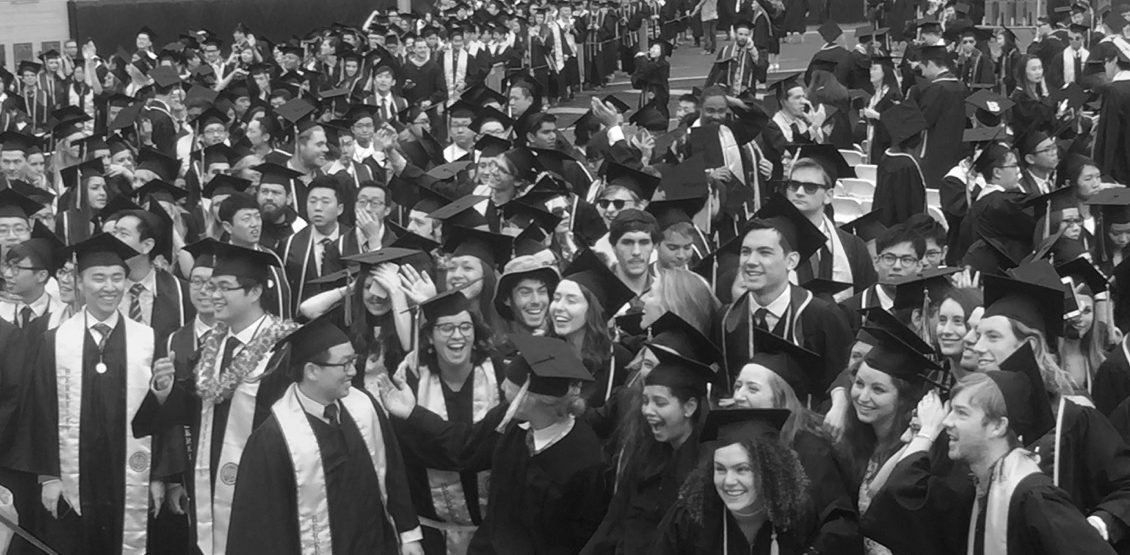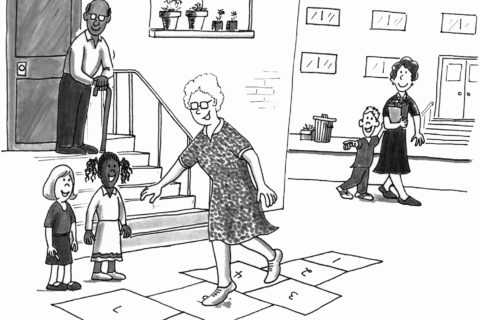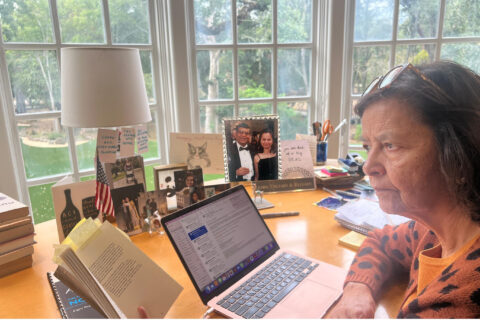
Do four-year degree colleges serve us well after consuming formidable years of our lives and charging enormous tuitions? I used only 20% of what I learned in my engineering education.
The purpose of a university education should be to give employable skills. But according to Gallup, “only a third of students believe they will graduate with the skills and knowledge to be successful in the job market”.
Furthermore, most popular college ranking systems done by US News and Times Higher Education, do not seek employers’ inputs, to my surprise.
College counselors will tell prospective students that highly selective ones, look for applicants who stand out, who can make a difference and who have led an inspired life.
I have been at the other end of the process: hiring college graduates. I did not expect twenty-somethings to be trailblazers. As a founder of a tech startup, I hired them because they were trainable, malleable and did not cost as much.
Why is there such a disconnect between how colleges evaluate their applicants and how employers evaluate job candidates? And, is an Ivy League degree worth sweating for?
My vice presidents were from state schools, but they worked smartly and as a team, to make the company successful and take it public — something that only 5% of startups can claim.
Out of almost 100 engineers, I interviewed and hired, the ones from top schools were not much different than engineers from local state schools.
Sara Harberson, a private admissions consultant, believes that “…it is the students who propel themselves… I have always believed that it is not where you go; it is what you make of the opportunities you are given.”
This is also my experience with my two daughters. The older one, Anneka, went to Stanford and younger one, Serena, to Berkeley. Stanford is a top private university and UC Berkeley a top state university which costs much less.
At Berkeley, the environment was more egalitarian, where students seemed free-spirited — with no sense of entitlement. At Stanford, no one knew who had been admitted on her own merit and who had been tagged as special applicants who could not be ignored by the admission officers.
Anneka, who had graduated high school with a perfect GPA, was flustered when she was unable to maintain that record at Stanford. After graduation, she was hired by a San Francisco startup after a rigorous interview. She came out of college as a somewhat stubborn pragmatist.
Soon after accepting the position at the company, she transitioned from software engineering into marketing, without knowing exactly what it entailed. She also ran their human resource department when the founder convinced her that it was like marketing, but to future employees. For a Stanford software and math graduate, that wasn’t cool.
With her well-rounded experiences, when her startup LiveRamp did well, at 29 she was promoted to co-CEO of a $200 million company. She learned to be a trailblazer through her own agility and humility — not learned at Stanford.
The younger one, Serena, is also a software engineer at a startup in San Francisco. She got an early taste of starting a company, at UC Berkeley.
After her sophomore year, she took an unpaid summer internship, on her math professor’s recommendation. The company was to build software for ‘teacher evaluation survey’.
The founder would do the coding, the math professor provide access to UC Berkeley market, and Serena would test the software and be also responsible for marketing.
Near the end of the internship, Serena’s venture capitalist dad asked her if they had talked to her about how much of the pie she would get if the company were to be successful. They had not. When she asked her professor, he thought that they should each get one-third; the founder said that 95% should go to him, 5% to Serena and nothing to the professor. The professor was mighty mad, and without him, the company fell apart!
Then, the professor invited my husband and me to campus for coffee. We were surprised to see that he treated Serena as his equal.
It is such off-classroom experiences of university campuses and their own drives that the students learn from. But what about in-class education?
Shouldn’t universities take some responsibility for teaching students to discover what they value as individuals, which will give meaning and purpose to their lives as they transition into adulthood?
Can they have effective programs to enhance how to learn, how to strive for personal growth, make decisions amongst ambiguities or make better decisions by recognizing our cognitive biases?
With their institutional knowledge and intellectual capital, universities and colleges should overhaul education to make it more relevant for employers and prepare students for future transitions into new fields with changing times.
Like employers, colleges should focus on practical qualities in their admissions, curriculum and style both need modernization, and better hand-holding by career-counselors can do wonders.
Yet, colleges continue to provide an environment for personal growth and college-education gives the best chance for socioeconomic mobility in our democratic society.








Daniel Sonner
I disagree that “the purpose of a university education should be to give employable skills.” I think the purpose should be to educate students. Lots of education isn’t useful for employment but is very valuable nonetheless. Working in tech lots of things I learned in college don’t add value to my work but add value to my life. I think the ideas from literature and Spanish classes were were some of the most interesting and meaningful things I learned.
Valerie Baldwin
When I was in college I was very frustrated that I was not able to learn skills that would translate directly into job opportunities. But after I was working, I realized that the general skills I learned were invaluable: how to write well, how to work with others in teams, how to organize, how to research information, and become a more knowledgeable person. These general skills are much more valuable than specific work skills which can be learned on the job. On my early job as a computer analyst, one of the best in our group was an English major.
vinitagupta
True. These general skills do come handy in life. But those with less time and money need to get employable skills and get going. With career counseling, they can be better guided, perhaps.
Karen Druker
I personally lament the fact that many high schools have dropped the trades – automobile mechanics, wood shop, etc. which would provide our communities with plumbers, mechanics, handymen, electricians , so badly needed. I got a quote from a handyman service- and it was $150 per hour! I know social workers who have graduated from Harvard or Yale who are not making that kind of money. A plumber fixed my flooding water heater in 20 minutes and charged me $1100! My landscaper/ yard man is fabulous and he learned from his father. I pay him $550 per month, and God only knows how many clients he has! I completely disagree with Bernie Sanders that all should go to college, and it should be free! If college is free, it is devalued, and I believe that young adults would not study as much or try as hard if it was free. I do believe in the Berry plan, which helps those who have served in the military with college expenses, and keeps our country strong, as my husband and i benefitted from it. I also firmly believe that Community Colleges are a great resource for those with little financial resources. Costs at community colleges can be as low as $1500 per year. As an artist, I personally donate money to the students at Foothill college who want to take an art class , and drop out after the first week , after they discover the supply list for the class is $65- $250 for the needed supplies. You can make donation of a mere $66 to help a student be able to afford an art class at SJSU. It is appalling that 10 % of students at SJSU and some other area colleges are homeless, due to the high prices of housing in this area. College is challenging enough without worrying about where to sleep and finding food!
vinitagupta
We all see the problems, why don’t the educators. Thanks for your thoughts.
Aditya Kumar Ahuja
I like your analysis of the output from various colleges.
But I guess, your views are based essentially on the US environment. Conditions in India are far worse. Output from most of Indian private colleges leaves a whole lot to be desired. In fact Indian State Universities give much better products.
I agree with you regarding the in-class education.
Good to learn more about the entire family of my classmate at IITD.
Best wishes,
Aditya
vinitagupta
Thanks for your views.